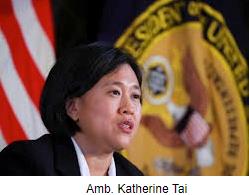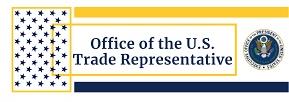 Each year the Trade Representative of the U.S. is required to submit a report to Congress on barriers to trade and investment that disadvantage domestic companies. The 2024 report under signature of, Ambassador Katherine Tai, U.S. Trade Representative (USTR), identified significant barriers to exports of U.S. agricultural products. These included opaque and burdensome facility registration requirements, nonscientific barriers based on sanitary measures, failure to recognize approval of established biotechnology with reference to the E.U. and Mexico. Unjust restrictions as a result of local or regional outbreaks of highly pathogenic avian influenza (HPAI) have impeded exports to many nations including the People’s Republic of China that in any event has endemic HPAI of diverse strains.
Each year the Trade Representative of the U.S. is required to submit a report to Congress on barriers to trade and investment that disadvantage domestic companies. The 2024 report under signature of, Ambassador Katherine Tai, U.S. Trade Representative (USTR), identified significant barriers to exports of U.S. agricultural products. These included opaque and burdensome facility registration requirements, nonscientific barriers based on sanitary measures, failure to recognize approval of established biotechnology with reference to the E.U. and Mexico. Unjust restrictions as a result of local or regional outbreaks of highly pathogenic avian influenza (HPAI) have impeded exports to many nations including the People’s Republic of China that in any event has endemic HPAI of diverse strains.
Ambassador Tai noted “The USTR is determined to use all available tools to ensure that U.S. agricultural producers are provided fair access to compete on a level playing field globally.”
 The report highlighted the lack of uniformity among nations in the European Union. Different policies are imposed across member states including labeling, agriculture biotechnology, packaging and intellectual property. The competitiveness of U.S. industries is threatened by subsidies, financial support and other preferences and policies to the advantage of foreign goods.
The report highlighted the lack of uniformity among nations in the European Union. Different policies are imposed across member states including labeling, agriculture biotechnology, packaging and intellectual property. The competitiveness of U.S. industries is threatened by subsidies, financial support and other preferences and policies to the advantage of foreign goods.
The office of the USTR constantly evaluates situations to determine whether barriers are based on legitimate scientific and public concerns or are unjustified barriers to free trade. In the event of unjust obstruction to U.S. imports, the USTR initiates action through the World Trade Organization and for specific barriers including dairy exports to Canada and GM corn to Mexico, through the appeals processes allowed under the USMCA Trade Pact.